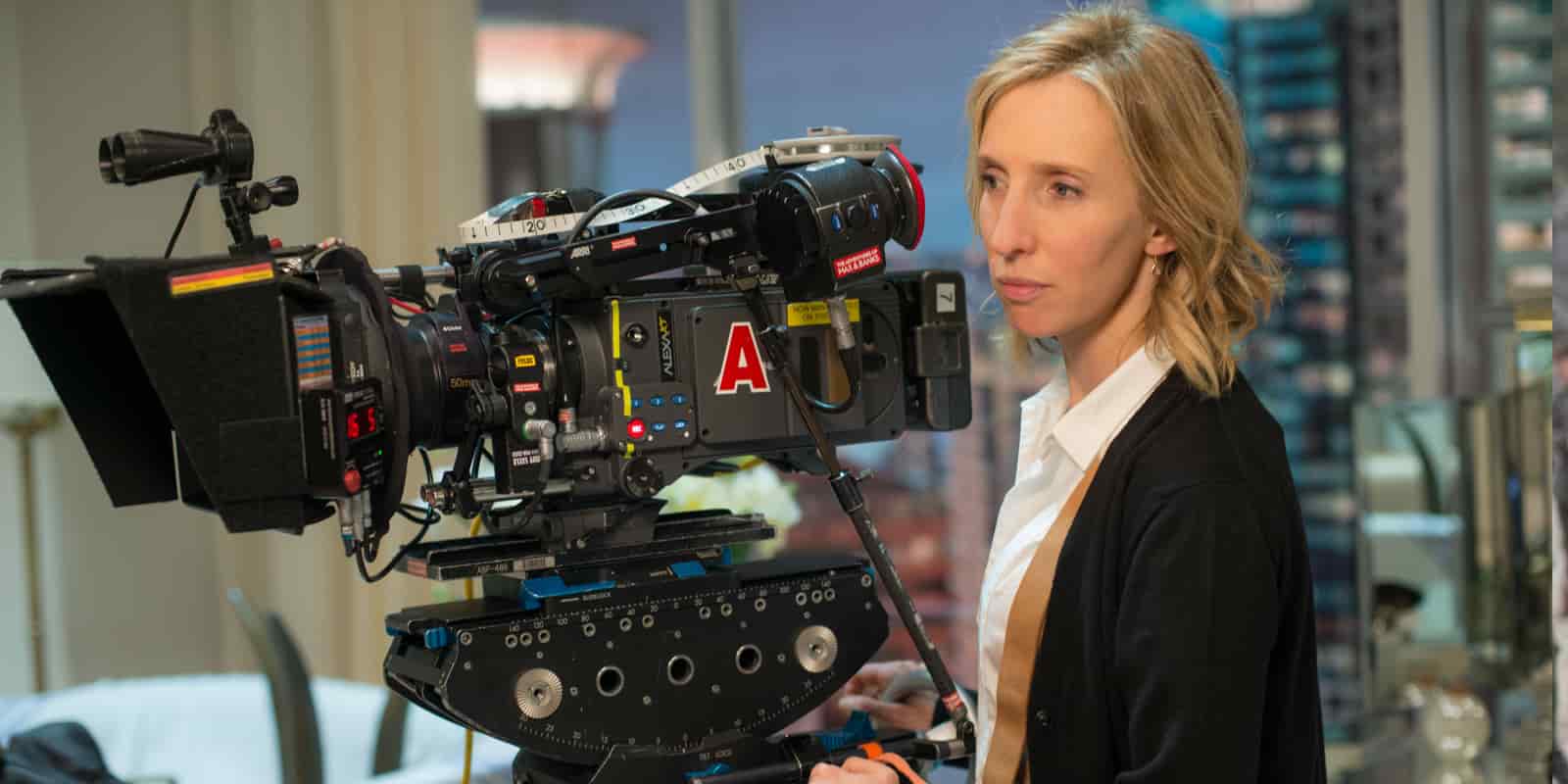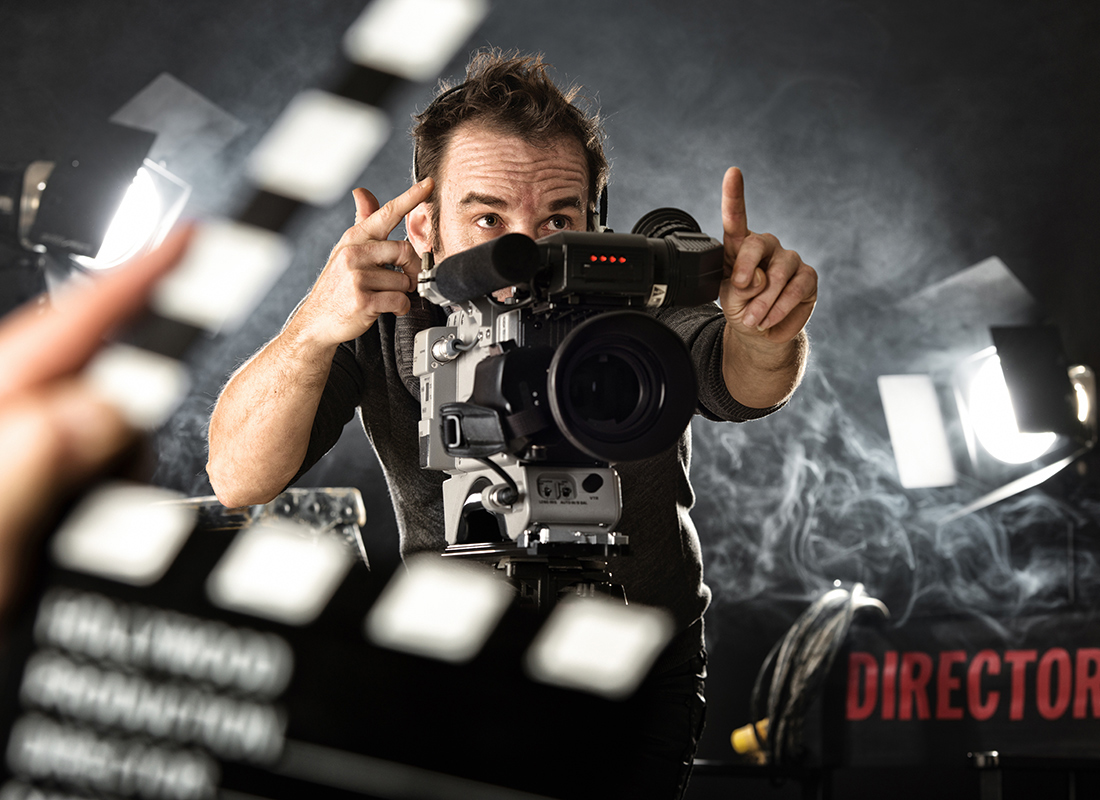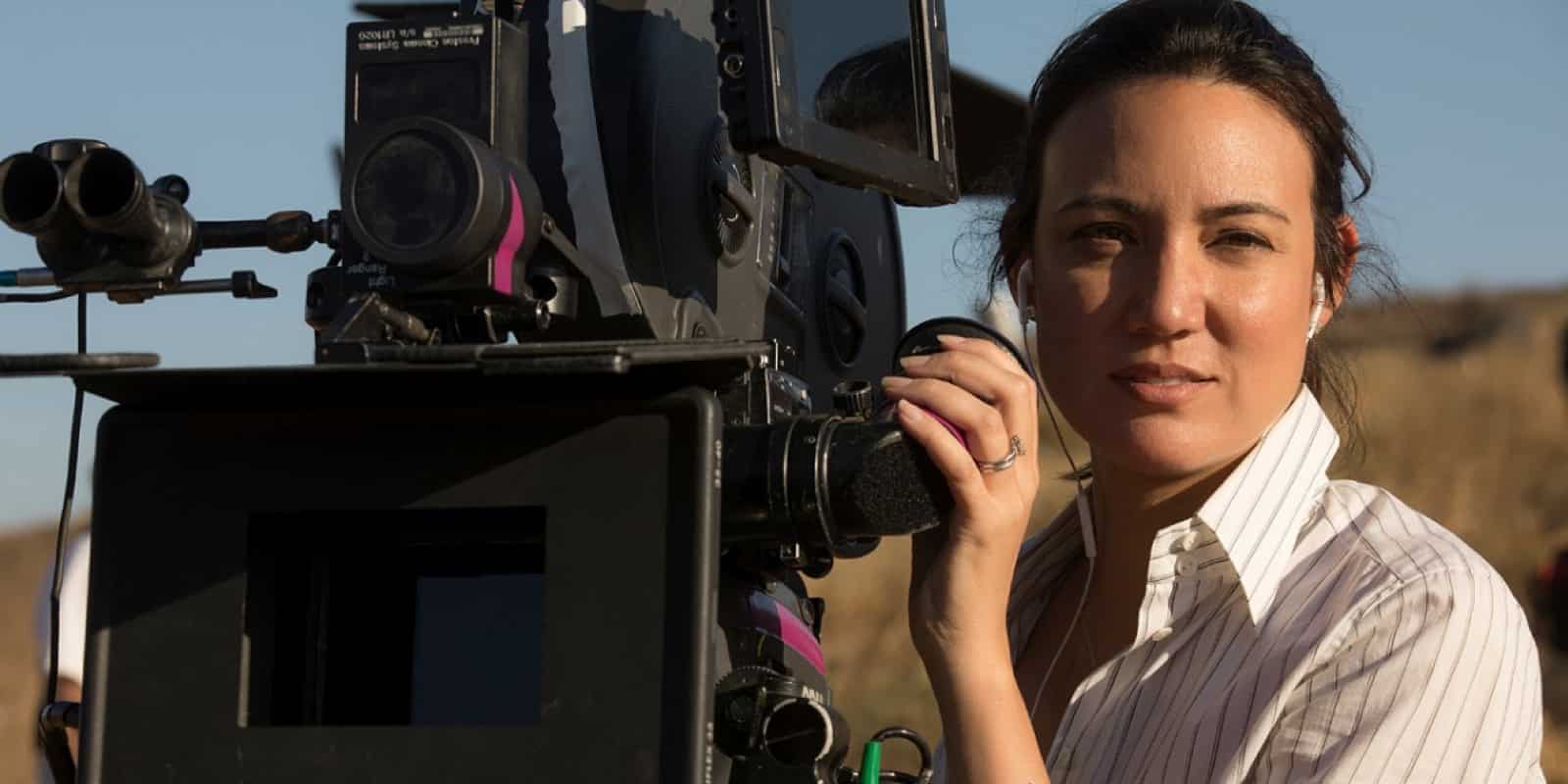Have you ever stopped to think about how a birthdate might shape a creative spirit, especially for someone who makes films or plays? It’s pretty interesting, actually. A person's birth year can really give us clues about the world they grew up in, the stories they heard, and the artistic influences that were all around them. So, when we think about a director born October 29, 1976, we are considering someone who came of age during a period of significant change in storytelling and technology.
The year 1976, you see, sits right in a fascinating spot. It’s after the classic Hollywood era, but before the full digital revolution took hold. This means any director from this specific year would have experienced a unique blend of old-school techniques and emerging innovations. They would have watched cinema evolve, perhaps feeling a connection to both traditional narratives and the fresh, bold approaches that started appearing more and more.
This article will look into what it means to be a director, particularly one who began their life on October 29, 1976. We'll explore the role they play, the kind of world they might have been shaped by, and the general characteristics one might expect from someone guiding creative projects from that particular generation. So, in a way, we're thinking about the kind of person who could hold such a significant creative position, with that very specific birthdate.
Table of Contents
- The Director's Role: Shaping Stories
- A Look at the Birth Year: 1976 and Its Creative Landscape
- Hypothetical Journey: The Life and Work of a Director Born in 1976
- Key Characteristics of Directors from the Late 70s
- The Director's Craft: Guiding Vision
- Impact and Influence: A Director's Legacy
- Frequently Asked Questions About Directors
- Final Thoughts on Creative Paths
The Director's Role: Shaping Stories
A director, as we know, is someone who directs. This means they are a very important creative person in making films, theater shows, or television programs. They are responsible for looking over and bringing together many different parts of a project, which is pretty much the core of what they do. They truly guide the whole creative effort, you know?
Their work involves guiding actors, helping them find their best performances. They also make artistic and technical choices, like how a scene looks, how it sounds, and the overall feel of the story. This involves making sure everything fits together to tell the story in the best possible way. So, it's about putting all the pieces in place for the audience.
In essence, a director acts as the main storyteller, making sure the final product matches their creative idea. They work with everyone involved, from the camera people to the writers, to make sure the vision comes to life. It’s a job that needs a lot of different skills, and really, a good bit of vision, too.
A Look at the Birth Year: 1976 and Its Creative Landscape
Thinking about a director born October 29, 1976, means we consider the cultural backdrop of their early years. The mid-to-late 1970s were a time when cinema was really changing. Blockbusters were becoming a thing, but there was also a lot of independent filmmaking happening. So, anyone growing up then would have seen a wide range of storytelling approaches, which is quite interesting.
Children of 1976 would have been teenagers in the late 1980s and early 1990s. This period saw the rise of MTV, the spread of home video, and the beginnings of digital effects in movies. These influences, in a way, shaped how stories were told and consumed. They might have been exposed to a very different kind of media than earlier generations, which could certainly influence their own creative ideas.
By the time they reached their twenties, the internet was starting to become more common, and digital filmmaking tools were becoming more accessible. This meant a director from this era might have had the chance to experiment with new ways of making films that weren't available to those just a few years older. It's almost like they were at the cusp of a whole new way of doing things, you know?
Hypothetical Journey: The Life and Work of a Director Born in 1976
Let's imagine, for a moment, the journey of a director born October 29, 1976. Their path might have started with a love for movies watched on VHS tapes, or maybe even going to the cinema regularly. They might have experimented with early video cameras, making short films with friends. This early exposure to both classic and emerging media would likely shape their artistic voice, in some respects.
As they moved into higher education, they might have studied film or theater, learning about the craft from both experienced professionals and new, innovative thinkers. The late 90s and early 2000s were a time when independent film really gained traction, offering new avenues for aspiring directors to tell unique stories. So, they could have found inspiration in many different places.
Their career might have started with smaller projects, perhaps music videos, commercials, or short films, slowly building up their experience and reputation. The ability to adapt to changing technology, from film stock to digital cameras, would have been a real asset for someone from this birth year. They would have had to learn and adjust, which is pretty common for creative people.
Personal Details and Bio Data
When we talk about a specific director, people often want to know more about their personal background. For a director born October 29, 1976, we would typically look for information like their place of birth, their education, and what they are known for. Since we are discussing a hypothetical individual, we can only outline the kind of details one might find.
| Full Name | Information not publicly available |
| Date of Birth | October 29, 1976 |
| Place of Birth | Location not specified |
| Nationality | Not specified |
| Known For | Hypothetical creative works (e.g., impactful storytelling, unique visual style) |
| Years Active | Potentially early 2000s to present |
| Notable Works | (Hypothetical titles, if they existed) |
This table gives a general idea of the type of information that would be important for someone researching a director. It’s useful for getting a quick overview of a person's life and professional journey, you know? While we don't have a specific name, the structure shows what people typically look for.
Key Characteristics of Directors from the Late 70s
Directors born in the late 1970s, like our director born October 29, 1976, often share certain characteristics. They grew up with a strong connection to classic storytelling, but also witnessed the explosion of independent voices and new technologies. This means they might have a balanced approach, respecting tradition while also pushing boundaries, which is a pretty cool mix.
They might be particularly good at blending different genres or styles, having seen so many different kinds of films and shows during their formative years. There’s a good chance they would appreciate both the emotional depth of character-driven stories and the spectacle of large-scale productions. This dual appreciation, so, could really shape their creative output.
Furthermore, this generation of directors would have adapted to the shift from physical media to digital, and from cinema-only releases to streaming platforms. Their ability to work across these different formats and distribution channels would be a significant strength. They would have to be very adaptable, which is a key trait for anyone in the creative fields today.
The Director's Craft: Guiding Vision
The core of a director's job is to bring a vision to life, as a matter of fact. This involves more than just telling actors what to do; it means creating a whole world for the story to exist in. They work with the production designer to create the look, with the cinematographer to capture the images, and with the editor to shape the rhythm of the piece. It’s a very collaborative process, too.
A director guides actors by helping them understand their characters' motivations and emotions. They create a safe and inspiring environment where actors can give their best performances. This requires a deep understanding of human behavior and storytelling, and a lot of patience, obviously. It’s about getting everyone on the same page, really.
They also make countless artistic and technical choices, from the color palette of a scene to the specific lens used for a shot. Every decision contributes to the overall feeling and message of the story. This constant decision-making is what shapes the final product, giving it its unique voice and impact. It's a bit like being the main architect of a story, you know?
The process of directing also involves problem-solving on the fly. Unexpected challenges always come up during production, and the director must find creative solutions while keeping the overall vision intact. This ability to think quickly and adapt is a very important skill, and it’s something that develops with experience. It’s a job that keeps you on your toes, basically.
From the first script read-through to the final sound mix, the director is the consistent creative force. They hold the entire narrative in their mind, making sure every element serves the story. This persistent focus on the narrative arc is what makes a director such a central figure in any production. They are the ones who truly see the whole picture, you could say.
Impact and Influence: A Director's Legacy
The influence of a director, especially one who has been working for some time, can be quite broad. Their films or shows can shape cultural conversations, introduce new ideas, or simply provide memorable entertainment. A director born October 29, 1976, would have had the chance to contribute to the cinematic landscape for many years now, leaving their mark. They could really have made a difference.
Their work might inspire other filmmakers, actors, or writers. A distinctive visual style, a unique way of telling stories, or a powerful message can resonate with audiences and future artists alike. This kind of lasting impact is what many directors hope for, and it’s a big part of their legacy. It's like leaving a creative footprint, in a way.
Moreover, a director's legacy isn't just about the projects they complete. It's also about the teams they build, the talent they discover, and the opportunities they create for others in the industry. They often mentor new artists, sharing their knowledge and helping to shape the next generation of storytellers. This is a very significant part of their role, honestly.
The stories they choose to tell, and how they tell them, can reflect or even influence societal views. A director from 1976 would have seen many shifts in how stories are presented and received, allowing them to bring a seasoned perspective to their work. They would have witnessed a lot of changes, which can give their work a certain depth, you know?
Ultimately, the work of a director born October 29, 1976, would be a reflection of their unique experiences, their creative vision, and the world they have lived in. Their contribution to film, television, or theater would be a testament to their dedication to storytelling. It’s a pretty amazing thing to consider, the sum of all their efforts over the years.
Frequently Asked Questions About Directors
People often have questions about the role of a director and what it takes to be one. Here are a few common inquiries that come up, which might help clarify things for you.
What is the main responsibility of a director?
The main responsibility of a director is to guide the creative and artistic aspects of a production, like a film or play. They oversee everything from how the story is told to how the actors perform. They are the chief vision holder, so to speak, making sure the final product matches their overall idea for the project.
How does a director guide actors?
A director guides actors by helping them understand their characters, providing direction on their performances, and creating an environment where they feel comfortable taking creative risks. They work closely with actors to bring out the best in their portrayals, ensuring the performances fit the story's needs. It's a very personal and collaborative process, really.
What skills are important for a director?
Important skills for a director include strong communication, leadership, creative vision, problem-solving abilities, and a deep understanding of storytelling. They also need to be good at managing people and projects, as they work with many different teams. It’s a demanding job that requires a lot of different talents, honestly.
Final Thoughts on Creative Paths
Thinking about a director born October 29, 1976, helps us appreciate the many factors that shape a creative career. It's not just about talent, but also about the specific time and place a person grows up in. The influences from their youth and the changes they witness in their field can really make their work stand out. It’s a pretty unique journey for each person.
The role of a director, as we’ve seen, is incredibly important for bringing stories to life. They are the ones who guide the entire creative process, making sure that every element contributes to the overall narrative. It’s a job that requires a lot of dedication and a clear vision, and it’s something that truly makes a difference in the world of entertainment. You can learn more about the art of directing on our site, actually.
We invite you to explore more about the impact of creative professionals and the fascinating world of film production. There's always something new to discover about how stories are made and who makes them. To keep up with the latest in cinematic storytelling, you can always check out other notable birthdays in film history. Or perhaps, you might want to delve deeper into the craft of visual storytelling right here on our page.



Detail Author:
- Name : Prof. Perry Medhurst II
- Username : elsa50
- Email : nichole58@stokes.org
- Birthdate : 1993-09-13
- Address : 3165 Tillman Square Apt. 943 New Ayla, PA 41786
- Phone : (870) 958-0843
- Company : Tremblay, Krajcik and Gutmann
- Job : Child Care Worker
- Bio : Id numquam nihil aperiam officiis autem dolore. Ut eos id quaerat laborum ad aliquam saepe eius.
Socials
twitter:
- url : https://twitter.com/jocelyn_dare
- username : jocelyn_dare
- bio : Atque ex consequatur pariatur quia. Est necessitatibus accusantium eligendi harum dolorum enim. Aut sint nostrum labore sed libero autem odio et.
- followers : 289
- following : 1953
facebook:
- url : https://facebook.com/darej
- username : darej
- bio : Cum voluptatem et repudiandae quia. Est perspiciatis et ea ut rem.
- followers : 2813
- following : 1393
linkedin:
- url : https://linkedin.com/in/jocelyn2932
- username : jocelyn2932
- bio : Harum est magnam quos laborum.
- followers : 2119
- following : 610